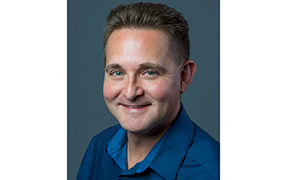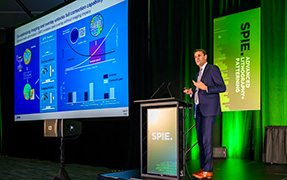Whether it be watching the World Cup on a Samsung Quantum OLED TV, venturing into the Quantum Realm with Ant-Man, or cleaning dishes with Finish Quantum Detergent, “quantum” has become a household term. However, in the history of science, quantum physics is fairly recent; Erwin Schrödinger introduced his landmark Schrödinger equation, a major milestone at the origin of the field, only about 100 years ago. Thus, it should come as no surprise that corporations and the media preface their products and ideas with the term quantum to evoke thoughts of complicated science, futurism, and technological advancement.
Even within academic circles, quantum is often regarded as a complicated and counterintuitive topic. Niels Bohr, a founder of the field, stated that “anyone who is not shocked by quantum theory has not understood a single word.” Despite its pervasiveness in almost all modern areas of STEM—including biology, chemistry, mathematics, and electrical engineering—quantum mechanics is not usually a curriculum focus for most majors of study. Generally, only university physics students undergo a multi-course quantum series. These courses typically promote a calculation-based approach to quantum mechanics that discourages students from questioning the theory. This is unsurprising, given that leading scientific researchers and philosophers have yet to reach a consensus on all aspects of quantum theory. Despite these challenges in understanding, learning, and teaching quantum, there has been a large push in recent years to make quantum education more accessible to the public, at the K-12 level, for early university students, and for members of the workforce.
From a societal perspective, the motives for quantum education are clear. Today, quantum technologies, such as semiconductor electronics, lasers, magnetic resonance imaging (MRI), and global positioning systems (GPS), to name a few, are used more than ever before. In 2018, the US government passed the National Quantum Initiative Act, authorizing $1.2 billion in spending to support and accelerate the development of novel quantum technologies.
Of special interest are quantum computers, which have the potential to break modern cybersecurity and advance quantum simulation, promoting discoveries in domains such as pharmaceuticals, agriculture, and climate change. Major companies, such as Google and IBM, have also invested heavily in quantum computing divisions, and several startups have emerged in the area, creating a booming quantum job market. In the years to come, we will need a trained, talented, and diverse quantum workforce to support this growing quantum economy. Furthermore, as quantum technologies become more prevalent, it is critical for the public to acquire a basic understanding of these technologies, facilitating their adoption and promoting wider use. An informed public can also help ensure that these technologies are developed and utilized in an ethical and responsible manner.
While these are all important reasons, it was not the need for a quantum workforce or public awareness of quantum technologies that led me, personally, to quantum education. Rather, I fundamentally believe that quantum education can enhance general STEM education, especially if done well and at the right time in a student’s academic career.
To elaborate, quantum computation and information is a beautiful theory—at the intersection of mathematics, computer science, electrical engineering, and physics—which directly applies fundamental STEM ideas, such as complex numbers, linear algebra, probability theory, and Fourier analysis. These concepts comprise a core skill set that any successful STEM student, whether a chemist or aerospace engineer, needs to master at some point in their academic career. Most young students will not immediately recognize the immense importance and power of ideas such as complex numbers or linear algebra when introduced in a standard math class. However, when these math concepts are instead introduced as tools to understand the wacky nature of quantum superpositions, students become excited to learn the math and immediately get practice applying it. Therefore, I see quantum computing education as a unique way to motivate students to “eat their academic vegetables.”
In 2019, this view of quantum education led me to propose the crazy idea of teaching a high school-level quantum computing course to Kiera Peltz, CEO of The Coding School, a tech education nonprofit. At the time, there existed few approachable, introductory resources to quantum computation and virtually no K-12 quantum education. However, Peltz appreciated the vision and together we launched the Qubit x Qubit (QxQ) initiative. During the Covid-19 pandemic there was a dire need for virtual STEM education, to which Q´Q responded with a year-long “Introduction to Quantum Computing” course, offered to 10,000-plus high schoolers, university students, and members of the workforce, in more than 125 countries. We found students to be exceptionally engaged and excited. The course retained more than 80 percent of students, among which 55 percent came from traditionally underrepresented backgrounds and 85 percent indicated that the course increased their interest in STEM.
As a course instructor, I found this incredibly fulfilling. Irrespective of whether these students end up in quantum-related fields, the knowledge acquired through QxQ will serve them in any STEM career. Furthermore, given QxQ’s large emphasis on diversity, I believe we gave high school students the confidence and background necessary to excel in first-year college courses. Interestingly, acknowledging that even experts find quantum hard and do not have all the answers did not discourage but, rather, empowered students by eliminating their fear of asking questions and getting wrong answers.
In the years since, QxQ has continued to offer and improve this course, as well as introduce more programming, such as workshops, conferences, and research opportunities. I am incredibly proud of and excited by how far the organization has come and continues to grow. As of 2023, QxQ is a global leader in quantum education, especially at the K-12 level. Beyond training a diverse future quantum workforce, QxQ has used quantum education to prepare and excite tens of thousands of students for advanced STEM degrees. Although we may not “understand” quantum mechanics, as Nobel Laureate Richard Feynman once said, we surely can learn from it.
Francisca Vasconcelos is the founding academic director of Qubit x Qubit and an NSF graduate research fellow at the University of California, Berkeley, Department of Electrical Engineering and Computer Science. To learn more about Qubit x Qubit, visit the program webpage qubitbyqubit.org or contact quantum@the-cs.org
| Enjoy this article? Get similar news in your inbox |
|




